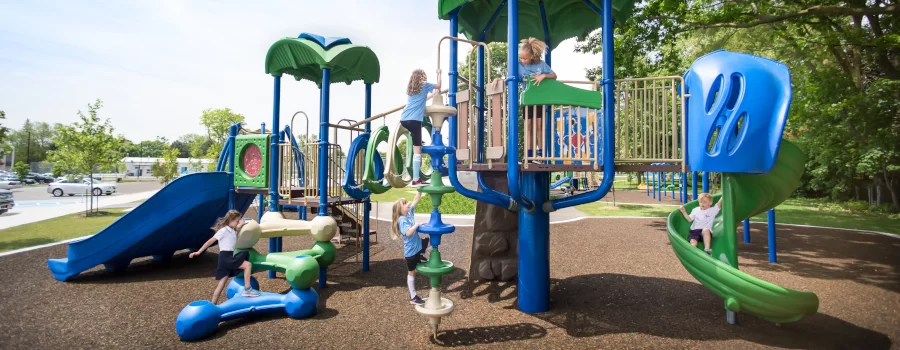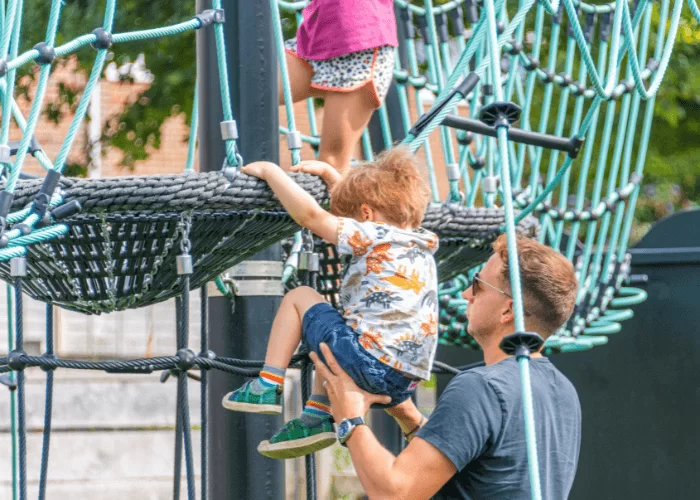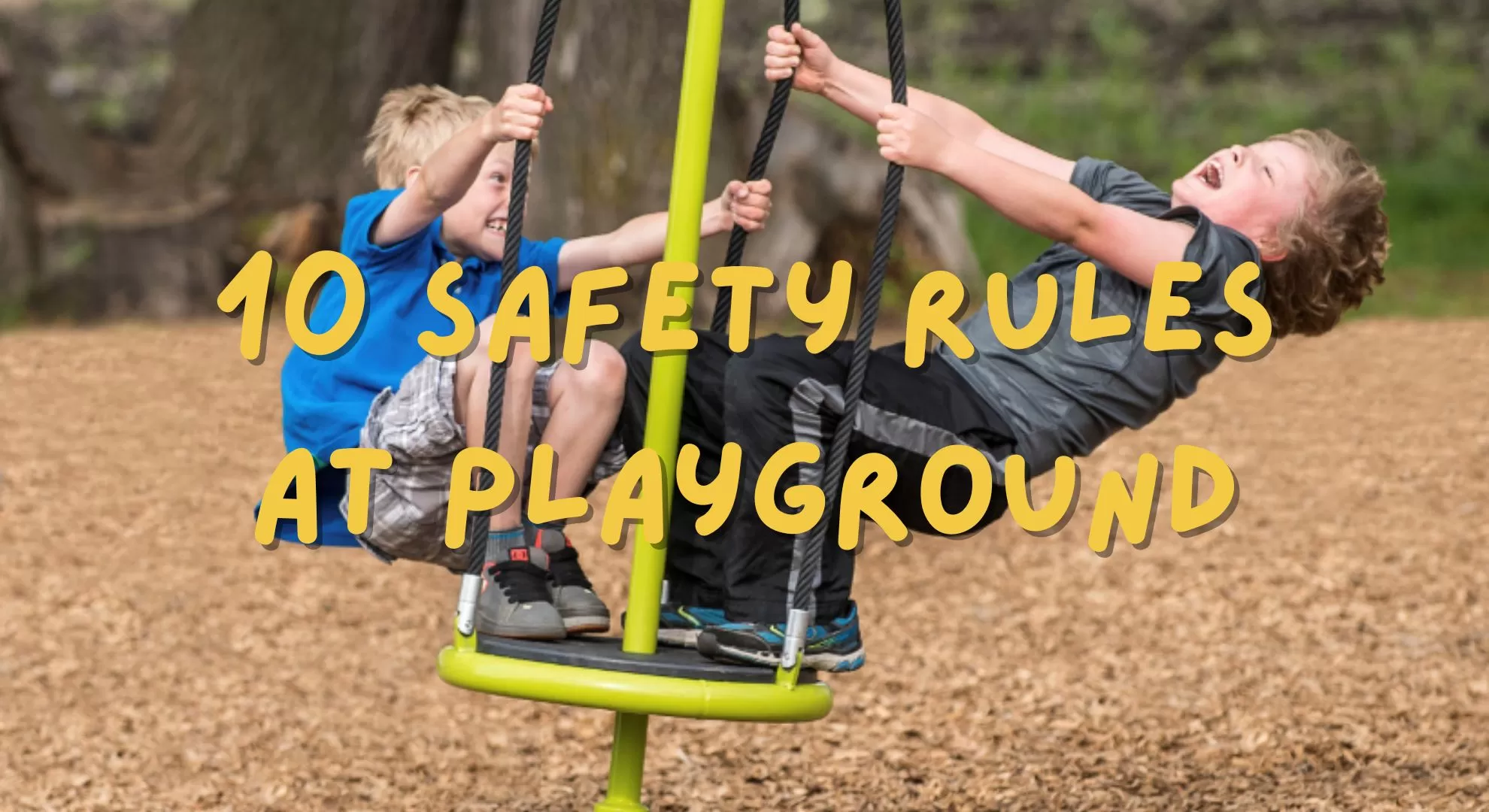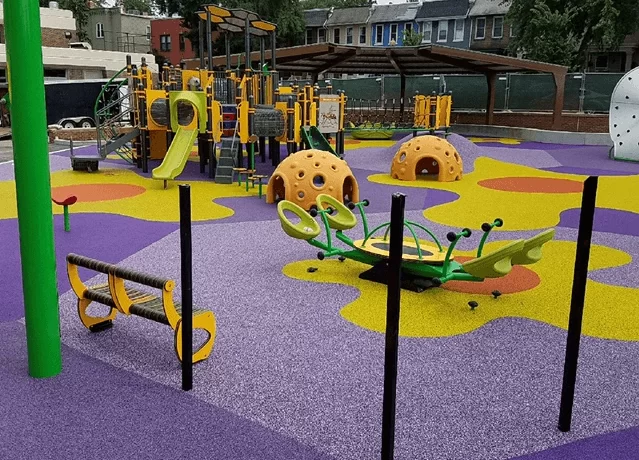Playgrounds are magical spaces where children explore, socialize, and grow. However, without proper safety measures at playground, they can become hotspots for injuries. Whether you’re a school administrator, park planner, or community center manager, understanding playground safety regulations and playground equipment standards is critical. Let’s dive into actionable playground guidelines to create a secure play environment.

Each year, over 200,000 children in the U.S. alone are treated for playground-related injuries, according to the CDC. These incidents often stem from falls, poorly maintained equipment, or design flaws. Prioritizing safety at playgrounds not only reduces risks but also builds trust with parents and caregivers. For facility managers, compliance with playground safety standards (like ASTM F1487 or EN 1176) is a legal and ethical responsibility.

Active adult supervision is the first line of defense. Caregivers should:
– Scan for hazards like broken equipment or tripping risks, following safety rules to be followed in the playground.
– Ensure kids use age-appropriate structures (e.g., separate areas for toddlers vs. older children) as per playground safety guidelines.
– Teach children playground rules for preschoolers rules like “no pushing” or “wait your turn”, especially in daycare playground rules environments
Schools and childcare centers can reinforce this with:
– Playground rules signs displaying visual reminders of rules and regulations for playgrounds (e.g., “no climbing on railings”).
– Training staff on safety rules at the playground, such as scanning for hazards every 15 minutes.

Follow these 10 safety rules at playgrounds to minimize risks:
1. Check surfaces: Use impact-absorbing materials like rubber mulch or poured-in-place (PIP) to meet soft fall requirements.
2. Inspect daily: Look for sharp edges, loose bolts, or rust.
3. Dress safely: Avoid drawstrings or necklaces that could snag.
4. Stay hydrated: Provide shaded areas and water stations.
5. Age-appropriate design: Separate equipment for toddlers (2-5 years) and older kids (5-12 years).
6. Monitor weather hazards: Check slides and metal surfaces in summer to prevent burns; clear ice or snow in winter.
7. Enforce safe play: Teach kids to avoid pushing, shoving, or crowding around equipment like swings.
8. Clear fall zones: Keep a 6-foot buffer around swings and slides, free of obstacles like rocks or benches.
9. Secure small parts: Ensure bolts, chains, and connectors are tightly fastened to prevent choking hazards.
10. Post clear signage: Use playground rules signs with visuals (e.g., “No climbing on guardrails”) to reinforce safety.
For a detailed playground safety checklist, refer to the National Program for Playground Safety, which includes playground safety tips like seasonal maintenance strategies.
Need Certified Playground Equipment? Explore NanPlay
Schools face unique challenges due to high foot traffic. Implement these rules for playgrounds in schools:
– Schedule staggered playtimes to avoid overcrowding.
– Train staff on emergency protocols for playground injuries.
– Use playground safety posters to remind students of safety rules while playing outdoor games like “feet first on slides” or “no roughhousing.”
Choosing certified, durable equipment is non-negotiable. At NanPlay, our designs comply with global playground equipment standards, ensuring longevity and safety. Below are key tips for popular structures:
– Ensure slides meet playground slide rules with protective barriers and a gradual slope.
– Check for hot surfaces in summer to prevent burns.
– Teach kids to slide feet first and avoid climbing up the slide.
– Use lightweight, flexible seats (e.g., rubber vs. wood).
– Maintain a swing fall zone of at least 6 feet on all sides.
– Anchor swings securely to prevent tipping.
– Install handles for grip and shock-absorbing bases.
– Limit seesaws to two children of similar weight.
– Ensure structures are under 6 feet for younger kids.
– Use soft fall material like sand or rubber beneath.

– Store items like jump ropes or balls when unused.
– Avoid hard plastic toys in high-traffic zones.
For playground safety inspections, partner with experts like Kidsafe NSW.
Creating a compliant play space requires expertise in playground impact areas, material selection, and layout optimization. At NanPlay, we specialize in custom playground solutions that blend creativity with safety regulations. Our team ensures:
– Proper spacing between structures to prevent collisions.
– Non-toxic, kidsafe plants for play spaces.
– ADA-compliant designs for inclusivity.
Explore our case studies to see how we’ve helped schools and parks build safer environments.
As a leading playground equipment manufacturer, we combine innovation with rigorous safety testing. Our products meet AS 4422 playground surfacing and movable equipment Kidsafe NSW 2014 standards. Contact us to design a playground that’s both fun and failsafe.
Thank you very much for your inquiry! Your trust is our greatest motivation. We are committed to offering playgrounds that combine high quality with affordable pricing. Let us bring vitality to your venue!